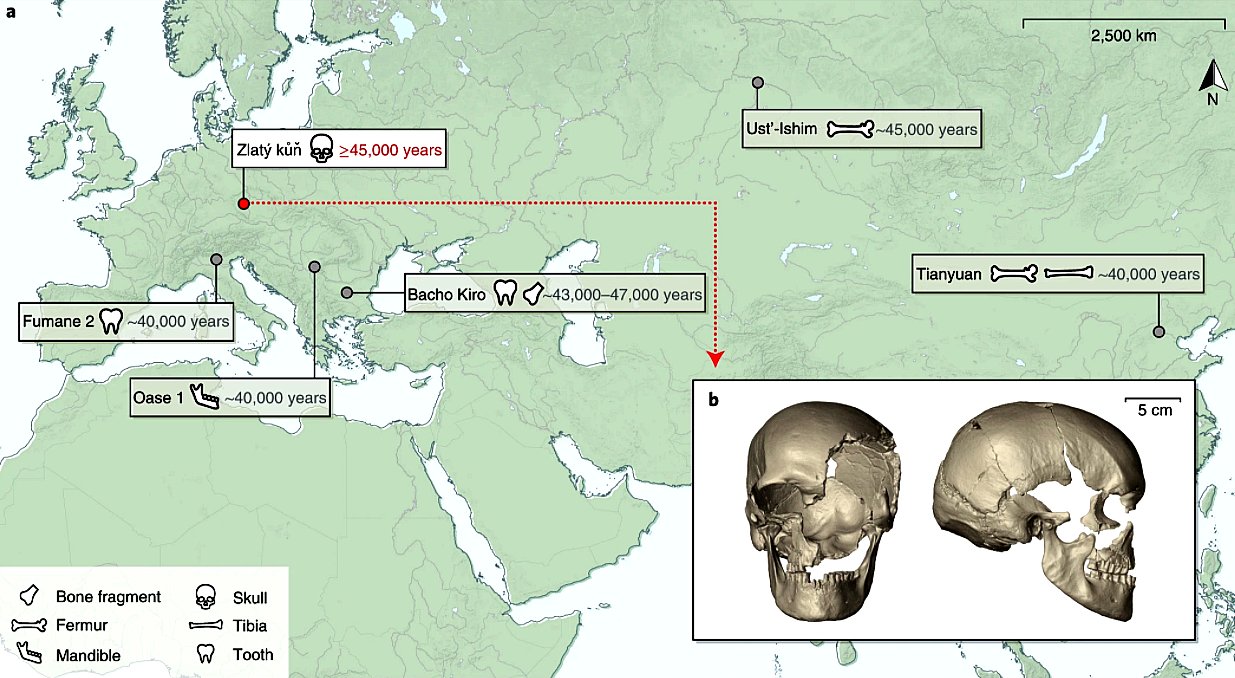And God blessed Noah and his sons, and said unto them, Be fruitful, and multiply, and replenish the earth. Genesis 9:1
"Modern humans supposedly arrived in Europe around 45 thousand years
ago (ka). Evolutionists believe Neanderthals disappeared by about 40 ka,
leaving a few thousand years when both modern humans and Neanderthals
lived in Europe at the same time. Two recent papers presented genomic
analysis of some of the allegedly earliest modern humans in Europe.
Hajdinjak et al. presented data from three individuals from Bacho Kiro Cave, Bulgaria (dated to between 45.93 and 42.58 ka), whereas Prüfer et al. analyzed a female skull from Zlatý kůň cave, Czechia (dated to ~45 ka).

It
was found that the three Bacho Kiro Cave individuals (comprising a
molar and two bone fragments) carried 3.0%–3.8% Neanderthal DNA.
Hajdinjak et al. said that these individuals were “more closely
related to present-day and ancient populations in East Asia and the
Americas than to later west Eurasian populations.” The genome of the
skull from Czechia carried about 3% Neanderthal DNA, and according to
Prüfer et al. “belonged to a population that appears to have
contributed genetically neither to later Europeans nor to Asians.”
Callaway mentions Viviane Slon, a paleogeneticist at the University of
Tel Aviv, as stating that the “research adds to growing evidence that
modern humans mixed regularly with Neanderthals and other extinct
relatives.”
Yet more proof that Neanderthals
were fully human.
The Czechian skull has been radiocarbon dated several times, yielding
approximate dates of 15, 27, 19, and 34 ka. But Callaway says that “on
the basis of its Neanderthal ancestry, Krause [co-leader of the study]
suspects it is well over 45,000 years old.” The radiocarbon dates, which
would not fit the standard evolutionary tale, are conveniently rejected
as being artificially young from supposed contamination." CMI
